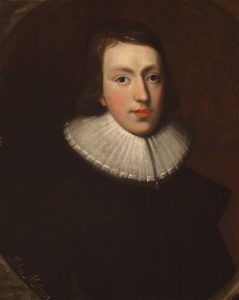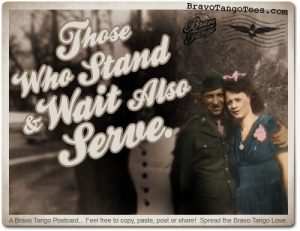
John Milton by Unknown artist, oil on canvas, feigned oval, circa 1629
Life seemed a very dark business to John Milton in 1655. His sight, which had been deteriorating for some years (probably as a result of untreated glaucoma) had totally gone, plunging him literally into a world of darkness. He was only 44, and his livelihood was at stake – as secretary in Cromwell’s government, he had to translate official foreign correspondence into Latin, write propaganda and serve as censor. He also wished to record the history happening around him, and write more personal poems as well. All this was seriously threatened by a loss of sight.
As a poet should, Milton sat down to work out his frustrations in verse. The result was …
On his Blindness by John Milton
When I consider how my light is spent
Ere half my days, in this dark world and wide,
And that one Talent which is death to hide,
Lodg’d with me useless, though my Soul more bent
To serve therewith my Maker, and present
My true account, least he returning chide,
Doth God exact day-labour, light deny’d,
I fondly ask; But patience to prevent
That murmur, soon replies, God doth not need
Either man’s work or his own gifts, who best
Bear his milde yoak, they serve him best, his State
Is Kingly. Thousands at his bidding speed
And post o’er Land and Ocean without rest:
They also serve who only stand and waite.
Milton’s famous Petrarchan sonnet was first published in his 1673 volume of Poems. He numbered the poems in the volume, and never gave this one the title by which it is known today (that was given by an editor 100 years later).
The poem is a religious one. Milton refers to the Parable of the Talents from the Gospel of Matthew, exploring the idea that God judges people on whether they work for him to the best of their ability, rather than measuring actual production. Milton struggles to work out what God expects of him now that his sight has gone and he can no longer present “his true account” (ie, his poetry) to God. The first half of the sonnet expresses frustration and bewilderment, a wavering of faith. There is plenty of light/dark imagery, emphasising both the literal and spiritual darkness the poet is enduring.
In the second half of the poem the tone is calmer. Milton has come to see that whatever “yoak” God makes him bear must be accepted with grace and steadiness, and then he will continue serving God. While one door has shut, others will open – Milton soon began to use friends and family as amanuenses, so found he could continue to write poetry after all. He discovers that there are many different ways in which to serve. We all have a place and a purpose in the world, regardless of disability, but patience and acceptance are needed to acknowledge that.

Bravo Tango postcard: Those Who Stand and Wait
The last line of the poem is very famous and often quoted. It was used as a slogan for the Home Front in WWII, appears frequently in the media, and is used for religious purposes and in advice books.
I am not religious and have no desire to serve any god, and yet I have always loved this poem. I think it is because of Milton’s deep sincerity, his anguish at losing his sight and his quest for something that can still give meaning to his relationship with God. It is amazing to think that a few years after writing this poem, Milton began Paradise Lost, his great work, without ever being able to see a word of it written down on a page.
For further reading:
Project Gutenberg: John Milton Paradise Lost
Librivox: John Milton Paradise Lost
Susannah Fullerton: John Milton sells the rights to Paradise Lost
Comments are moderated, and will not appear until approved.

Donald Nairn
I love this poem which I first read at school in the 1950s in Perth,WA. It is one of the poems I know by heart. I love the way it moves from perplexity and consternation to resignation and acceptance.But you can appreciate how he was such a brilliant polemicist tn his Jesuitical defence of God.
I enjoyed your reading of it on the CD
Susannah Fullerton
I am so glad you enjoyed my reading of it. Have you ever been to Milton’s cottage in Buckinghamshire? It is a fabulous museum and gives you a real sense of how he lived and wrote, even though blind.
Pam
I look forward to the monthly poem. Love the way you interpret the work and give details about the poet.
Susannah Fullerton
The hard part is choosing which poem to do – there are so many fabulous ones. I am really glad you enjoy my selection each month, and hope I’m introducing you to some new ones, as well as explaining old favourites.